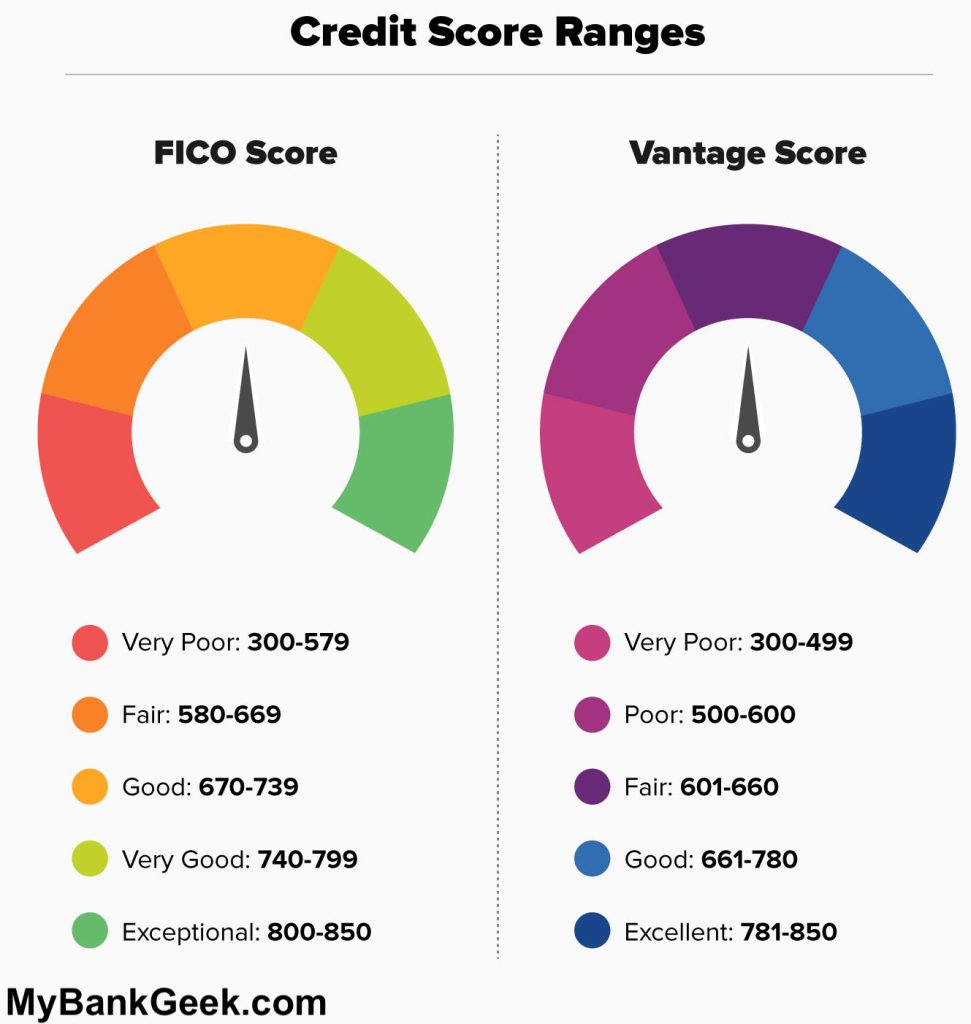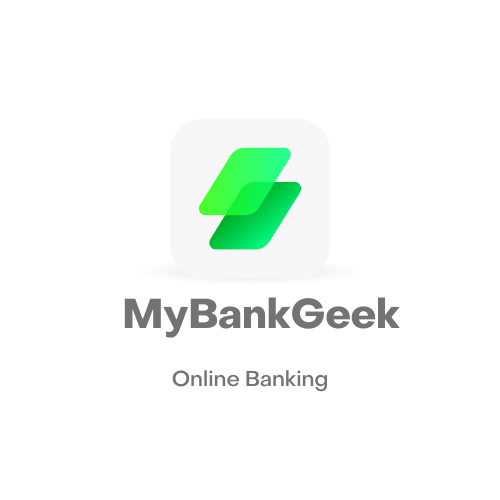If you’re a young adult just starting out or an individual who has primarily relied on cash transactions, the absence of a credit record can hinder your ability to secure loans for various purposes, such as buying a car, starting a business, or pursuing higher education.
However, the good news is that having no credit history doesn’t mean you’re completely shut out from accessing loans. There are viable strategies and alternative options available that can help you bridge the gap and demonstrate your creditworthiness to potential lenders. By understanding the financial landscape and taking proactive steps, you can pave the way towards obtaining a loan with no credit and unlocking the financial opportunities you seek.
In today’s MyBankGeek blog post, I will show you how to get a loan with no credit, the different types of loans available to people with no credit, as well as the factors you’ll need to consider when choosing a loan. We’ll also provide some tips on how to improve your credit score so that you can qualify for better loan terms in the future.
Can I Get a Loan With No Credit?
Yes, it is possible to get a loan with no credit history, although it may be more challenging compared to having an established credit history.
Lenders typically use credit scores and credit reports to assess the risk associated with lending money. However, there are loan options available specifically designed for individuals with no credit or limited credit history.
Types of Loans Available to People With No Credit
There are a few different types of loans that people with no credit can qualify for. These include:
- Secured loans: With a secured loan, you’ll need to put up collateral, such as a car or a savings account, to secure the loan. This means that if you default on the loan, the lender can take your collateral. Secured loans typically have lower interest rates than unsecured loans, but they also have higher fees.
- Unsecured loans: Unsecured loans don’t require any collateral. This means that if you default on the loan, the lender can’t take anything from you. Unsecured loans typically have higher interest rates than secured loans, but they also have lower fees.
- Payday loans: Payday loans are short term, high interest loans that are designed to help people cover unexpected expenses. Payday loans are typically repaid in full within two weeks, and they can have very high interest rates.
Factors to Consider When Choosing a Loan
When choosing a loan, there are a few factors you’ll need to consider, including:
- Interest rate: The interest rate is the cost of borrowing money. The higher the interest rate, the more you’ll pay in interest over the life of the loan.
- Fees: Loans can have a variety of fees, such as origination fees, late fees, and prepayment penalties. Be sure to factor these fees into your decision when choosing a loan.
- Loan term: The loan term is the length of time you have to repay the loan. Longer loan terms will have lower monthly payments, but you’ll pay more interest over the life of the loan.
- Repayment flexibility: Some loans offer more repayment flexibility than others. For example, some loans allow you to make interest-only payments for a certain period of time. If you have a variable income, you may want to choose a loan with more repayment flexibility.
How To Get A Loan With No Credit
Getting a loan with no credit history can be challenging since most lenders use credit scores as a key factor in determining loan eligibility. However, there are a few options you can consider:
1. Establish a relationship with a local bank or credit union:
Building a relationship with a financial institution can increase your chances of getting a loan. Start by opening a checking or savings account and demonstrating responsible financial behavior, such as regular deposits and avoiding overdrafts. Over time, they may be willing to extend a small loan to you.
2. Find a cosigner:
A cosigner is someone with established credit who agrees to take responsibility for the loan if you fail to make payments. Having a cosigner can help you secure a loan since the lender will consider their creditworthiness. However, keep in mind that if you default on the loan, it will negatively impact both your credit and the cosigner’s credit.
3. Explore credit builder loans:
Some financial institutions offer credit builder loans specifically designed to help individuals establish credit. These loans typically have lower loan amounts and higher interest rates, but they report your payment history to credit bureaus, which can help you build a credit history over time.
4. Consider a secured loan:
A secured loan requires collateral, such as a savings account, a vehicle, or other valuable assets. By offering collateral, you provide the lender with security in case you default on the loan. Secured loans are generally easier to obtain since they mitigate the risk for the lender.
5. Apply for a peer to peer loan:
Peer to peer lending platforms connect borrowers with individual investors. These platforms may have more flexible lending criteria than traditional banks. While some peer to peer lenders consider credit history, others focus more on your personal story and the purpose of the loan.
6. Borrow from family or friends:
Borrowing from family or friends is another option for people with no credit. If you have a trusted friend or family member who is willing to lend you money, this can be a good way to get the money you need without having to go through a lender. However, it is important to make sure that you can repay the loan on time, and that you have a clear understanding of the terms of the loan.
7. Seek out alternative lenders:
There are alternative lenders, such as online lenders, that may be more lenient in their eligibility criteria. However, be cautious when dealing with alternative lenders, as they often charge higher interest rates and fees. Take the time to research and compare different lenders to find the most reputable and affordable option.
8. Start with a small loan:
If you’re unable to secure a larger loan initially, consider applying for a smaller loan amount. By successfully repaying a small loan, you can begin building a credit history, which will improve your chances of obtaining larger loans in the future.
Remember, even if you can secure a loan with no credit, it’s essential to borrow responsibly. Borrow only what you need, make timely payments, and avoid taking on more debt than you can comfortably handle. Over time, as you establish credit history, you’ll have better access to loans and credit options.
Are No-Credit-Check Loans A Good Idea?
No-credit-check loans are loans that are not based on your credit history. This means that you can get a loan even if you have bad credit or no credit at all. However, no-credit-check loans typically have high interest rates and fees, which can make them expensive to repay.
If you are considering getting a no-credit-check loan, it is important to weigh the risks and benefits carefully. Here are some of the things to consider:
- Interest rates and fees: No-credit-check loans typically have high interest rates and fees. This means that you will pay more for the loan over time.
- Repayment terms: No-credit-check loans often have short repayment terms. This means that you will have to make larger monthly payments.
- Risk of default: If you default on a no-credit-check loan, the lender may take legal action against you. This could damage your credit and make it difficult to get a loan in the future.
How To Improve Your Credit Score

There are a few things you can do to improve your credit score:
- Pay your bills on time. This is the most important thing you can do to improve your credit score. Late payments can have a significant impact on your score, so it’s important to make sure you pay all of your bills on time, every time.
- Keep your credit utilization low. Credit utilization is the amount of credit you’re using compared to the amount of credit you have available. For example, if you have a credit card with a $1,000 limit and you have a balance of $500, your credit utilization is 50%. A good goal is to keep your credit utilization below 30%.
- Length of credit history. The longer your credit history is, the better. This is because lenders like to see that you’ve been able to manage credit responsibly over time. If you don’t have a long credit history, you can start building one by opening a credit card and using it responsibly.
- Get a mix of credit accounts. Lenders like to see that you have a mix of different types of credit accounts, such as credit cards, installment loans, and mortgages. This shows that you can handle different types of debt.
- Avoid applying for too much credit too often. When you apply for new credit, it’s called a “hard inquiry” and it can temporarily lower your credit score. It’s best to avoid applying for new credit unless you really need it.
If you’re still confused, you may check out Forbes blog for how to know a good credit score. If you follow these tips, you can improve your credit score and get approved for loans and other forms of credit at better rates.
READ MORE: Bad Credit Personal Loans Guaranteed Approval $5,000
Conclusion
If you are considering getting a loan with no credit, it is important to do your research and to understand the risks involved. A loan can be a helpful tool for consolidating debt, making a major purchase, or covering unexpected expenses. However, it is important to make sure that you can afford the monthly payments and that you are comfortable with the terms of the loan.
I hope this blog post has been helpful. If you have any further questions, please feel free to contact me.
FAQS
How do I find a lender that will approve me for a loan with no credit?
When you’re looking for a lender, it’s important to shop around and compare interest rates and fees. You can use online comparison tools to compare lenders and find the best deal. You should also be sure to read the fine print before you sign any loan agreements.
What are the risks of getting a loan with no credit?
Higher interest rates: Lenders who offer loans to people with no credit history typically charge higher interest rates than lenders who offer loans to people with good credit.
Shorter repayment terms: Lenders who offer loans to people with no credit history may also offer shorter repayment terms. This means that you’ll have to pay off the loan more quickly, which can make it more difficult to afford the monthly payments.
Prepayment penalties: Some lenders may charge prepayment penalties if you pay off your loan early. This means that you’ll have to pay a fee if you want to pay off the loan before the term is up.
What are some common types of loans for people with no credit?
Some common types of loans available to individuals with no credit include secured loans, cosigned loans, payday loans, and credit builder loans.
What is a secured loan?
A secured loan requires you to provide collateral, such as a car, home, or savings account, which the lender can claim if you fail to repay the loan.
Are payday loans a good option for people with no credit?
Payday loans are short-term, high-interest loans that are typically due on your next payday. While they may be an option for individuals with no credit, they often come with high fees and should be approached with caution.
What documents do I need to apply for a loan with no credit?
The required documents may vary depending on the lender and the type of loan, but commonly requested documents include identification (such as a driver’s license or passport), proof of income (pay stubs, tax returns, or bank statements), and proof of address (utility bills or lease agreement).
John Gurche was born in Los Angeles, California, and raised in Utah, England, New York, and Los Angeles again. He attended the University of California, Santa Barbara, earning his BA in 1969, and his Ph.D. in 1975. He is the author of 10 books, including: A History of Western Philosophy (with Stephen Toulmin), The Moral Landscape: How Science Can Determine Human Values, and The Liberal Imagination.

